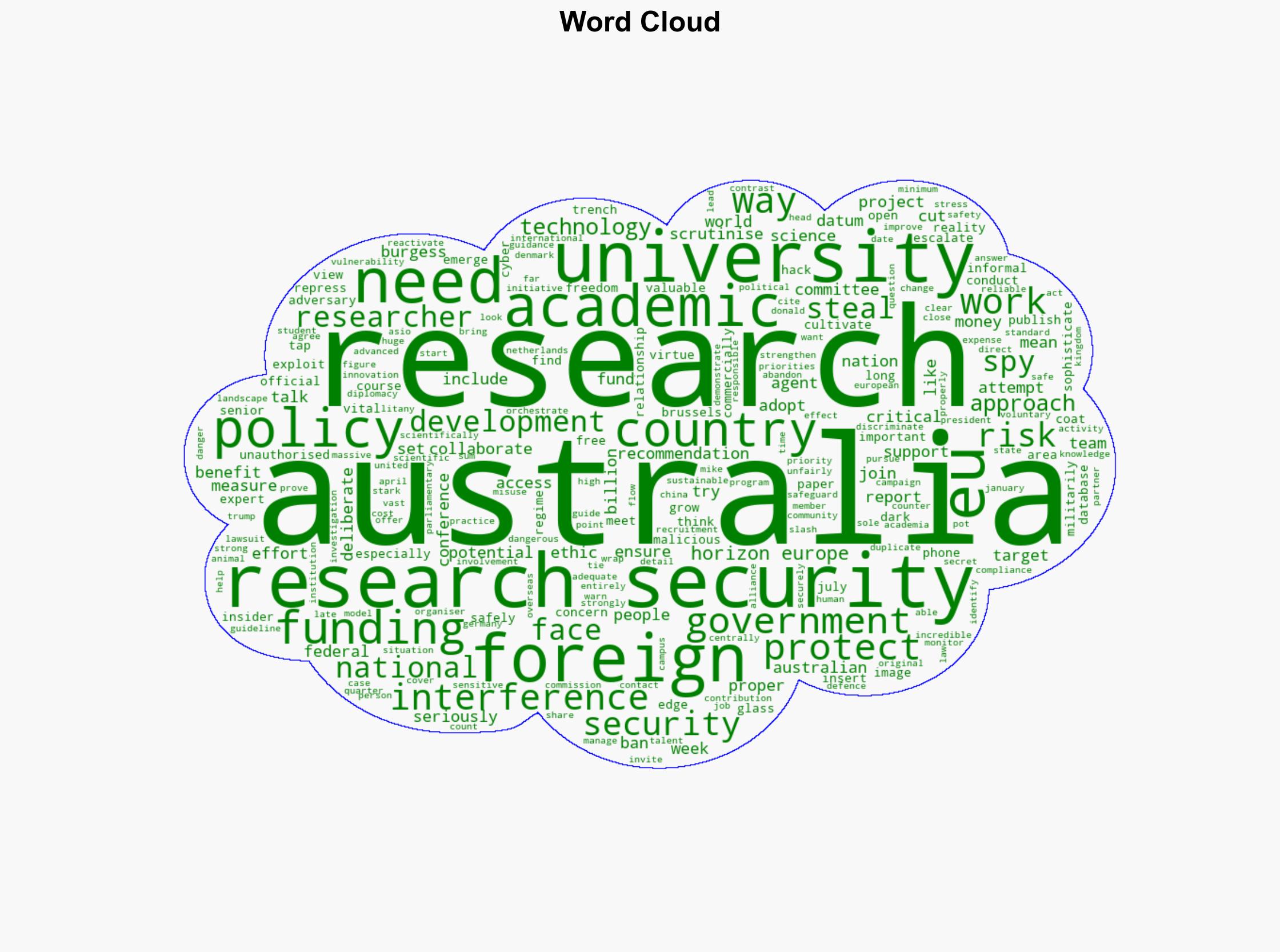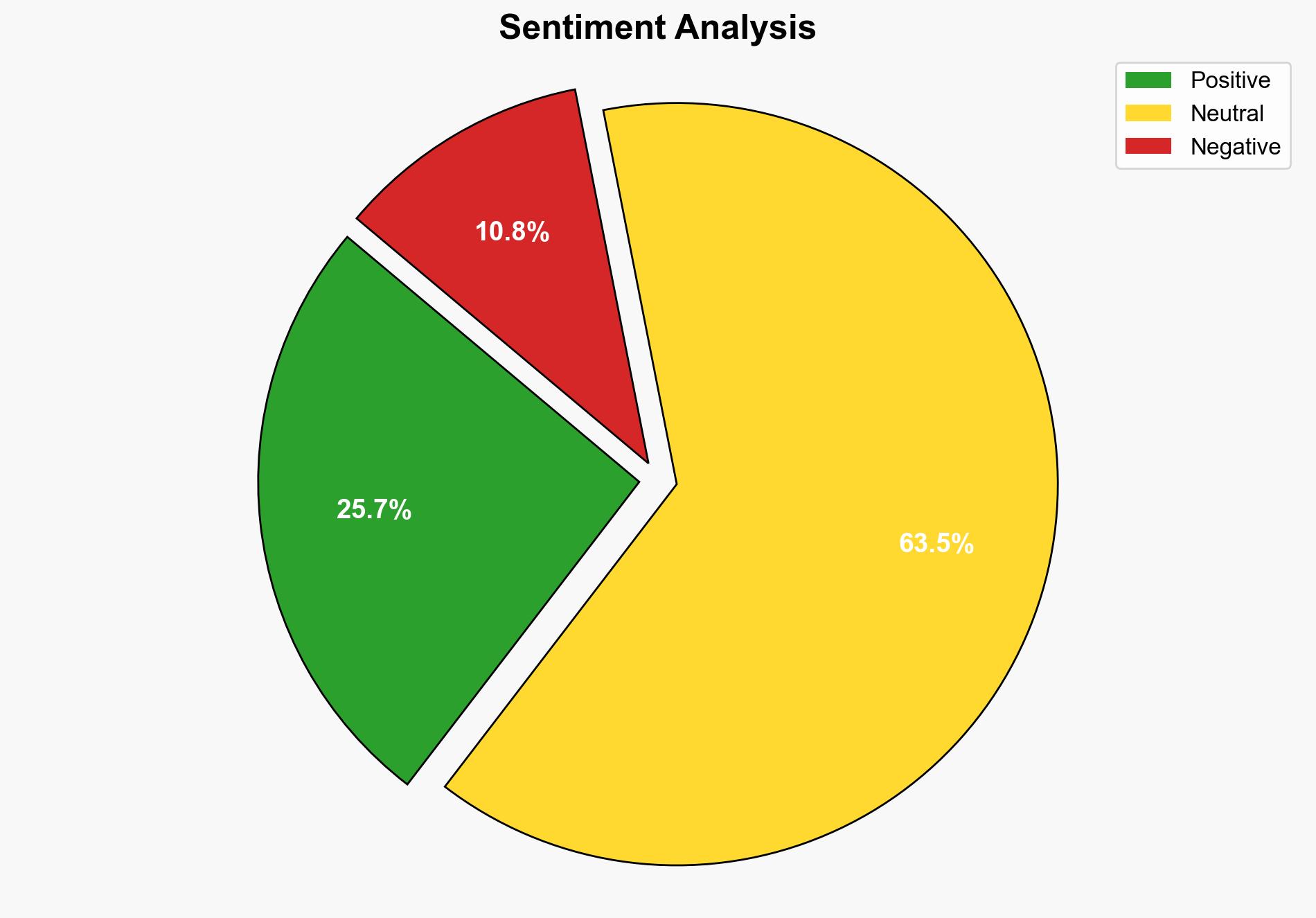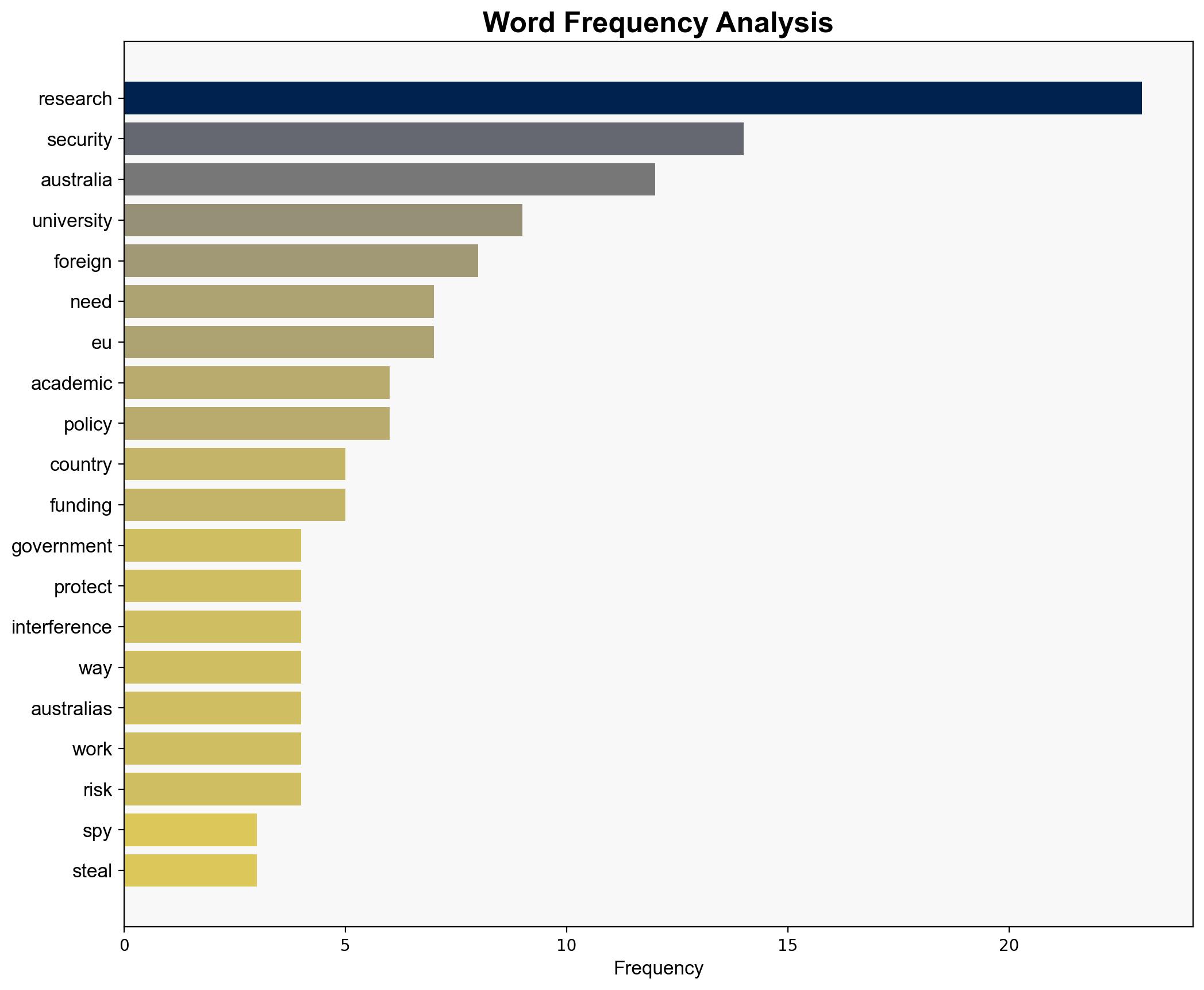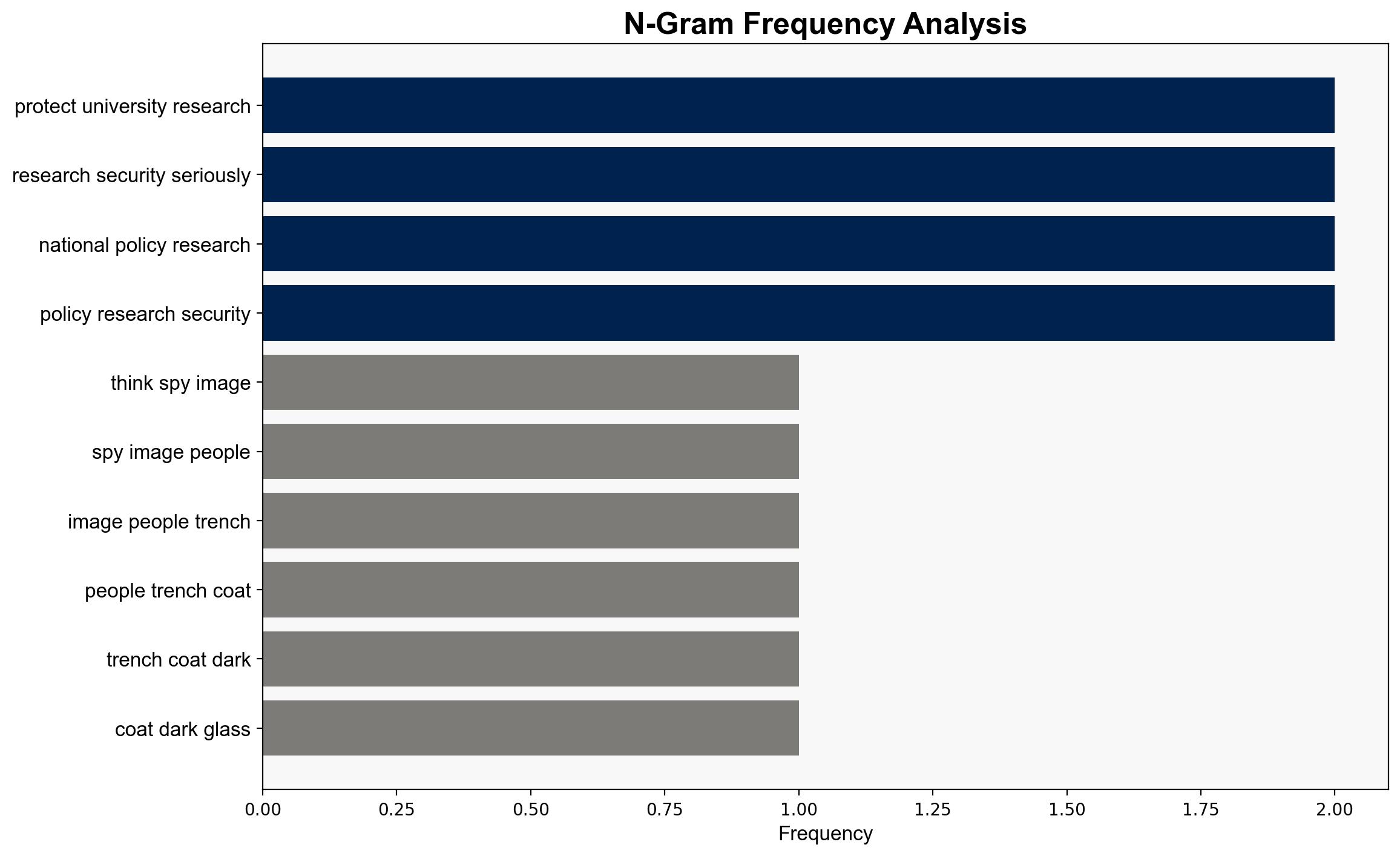Foreign spies are trying to steal Australian research We should be doing more to stop them – The Conversation Africa
Published on: 2025-10-26
Intelligence Report: Foreign spies are trying to steal Australian research We should be doing more to stop them – The Conversation Africa
1. BLUF (Bottom Line Up Front)
There is a credible threat of foreign espionage targeting Australian research, particularly from sophisticated state actors. The most supported hypothesis is that foreign entities are actively exploiting vulnerabilities in Australian research institutions to gain access to sensitive and commercially valuable information. Confidence level: High. Recommended action: Strengthen research security protocols and enhance international collaboration to counteract espionage efforts.
2. Competing Hypotheses
1. **Hypothesis A**: Foreign state actors are systematically targeting Australian research institutions to steal sensitive information and technology for military and commercial advantage. This is supported by reports of espionage activities, cyber vulnerabilities, and insider threats.
2. **Hypothesis B**: The perceived threat of foreign espionage is exaggerated, and the incidents are isolated cases of opportunistic cybercrime rather than coordinated state-sponsored efforts. This hypothesis considers the possibility of overemphasis on espionage due to geopolitical tensions.
Using ACH 2.0, Hypothesis A is better supported due to consistent intelligence reports of deliberate espionage efforts, including database hacks and insider threats, as well as strategic interests in Australian research.
3. Key Assumptions and Red Flags
– **Assumptions**: Hypothesis A assumes that foreign states have both the capability and intent to conduct espionage against Australian research institutions. Hypothesis B assumes that the threat is overstated and not part of a larger strategic agenda.
– **Red Flags**: Lack of specific attribution to particular state actors, potential bias in interpreting espionage activities as state-sponsored without conclusive evidence.
– **Blind Spots**: Insufficient focus on the role of non-state actors and the potential for domestic vulnerabilities contributing to espionage risks.
4. Implications and Strategic Risks
The ongoing threat of espionage poses significant risks to Australia’s economic and national security. Potential implications include the loss of competitive advantage in key technological sectors, damage to international research collaborations, and erosion of trust in academic institutions. Escalation scenarios could involve retaliatory cyber operations or diplomatic tensions with implicated states.
5. Recommendations and Outlook
- Enhance cybersecurity measures across research institutions and implement mandatory compliance with security protocols.
- Foster international partnerships to share intelligence and best practices in countering espionage.
- Scenario Projections:
- Best: Successful mitigation of espionage threats through robust security measures and international cooperation.
- Worst: Escalation of espionage activities leading to significant economic and technological losses.
- Most Likely: Continued espionage attempts with gradual improvements in security responses.
6. Key Individuals and Entities
– Mike Burgess, noted for highlighting the espionage threat to Australian academia.
– The European Union, as a potential partner in strengthening research security.
7. Thematic Tags
national security threats, cybersecurity, counter-terrorism, regional focus




